
The consumer speaks: 7 trends that could define ecommerce in 2023
At Canada Post, we have access to exclusive consumer insights. Each year, we conduct extensive research on consumer shopping preferences – covering the changing expectations around digital and omnichannel experiences, to help merchants plan and adapt to online shopper preferences. Here are 7 notable trends for 2023 to inspire your thinking, fuel your planning and keep you one step ahead of the consumer – and your competition.
A new year brings a new set of opportunities for online retailers to better align themselves with changing consumer needs and expectations.
We’ve seen massive changes in many sectors over the last few years. Will they continue? Any predictions are just that – predictions.
At Canada Post, we have access to exclusive consumer insights. Each year, we conduct extensive research on consumer shopping preferences – covering the changing expectations around digital and omnichannel experiences, to help merchants plan and adapt to online shopper preferences.
Here are 7 notable trends for 2023 to inspire your thinking, fuel your planning and keep you one step ahead of the consumer – and your competition.
1. Online shoppers are shopping with ethical intention
More than ever, consumers are aware that their buying decisions can make a positive, meaningful impact on the world. Younger consumers are migrating towards brands who build ethical, authentic practices into their business efforts – with honesty, environmental and social governance at the forefront.
Here are 4 brand factors that keep top of mind when choosing where to shop online:1
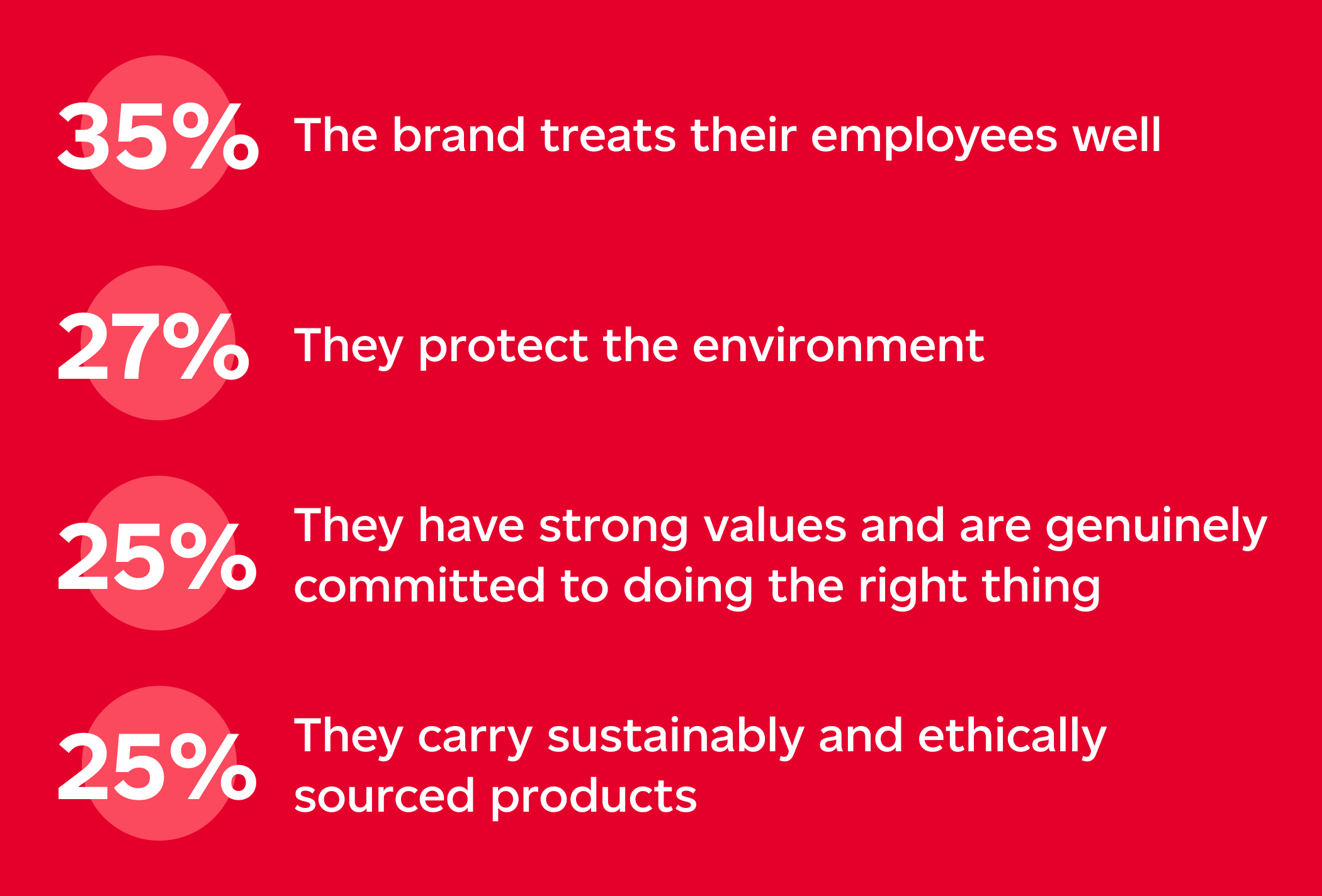
Think about ways in which you can establish and communicate a distinct corporate social responsibility message. It may involve exploring partnerships with the community and suppliers, cutting back or providing options on the packaging you use during shipping or choosing sustainably sourced materials. Be transparent about your values and demonstrate to your shoppers why they are so important to you.
For more on what shoppers expect from brands, explore our insights.
Explore Thriving in the new normal
2. Discovery channels: Put your brand where online shoppers are looking
The surge in ecommerce in over the last few years has seen brands responding quickly, bringing new products and services to market while addressing changing consumer needs in real time. It’s important to make sure shoppers, new and old, know about your new offerings and optimizations. Ensuring your brand is showing up where online shoppers are looking is key to expanding your reach and bringing in new customers.
Where are shoppers looking? They’ve told us that they consult the following, among others, to learn more about new brands and products:1
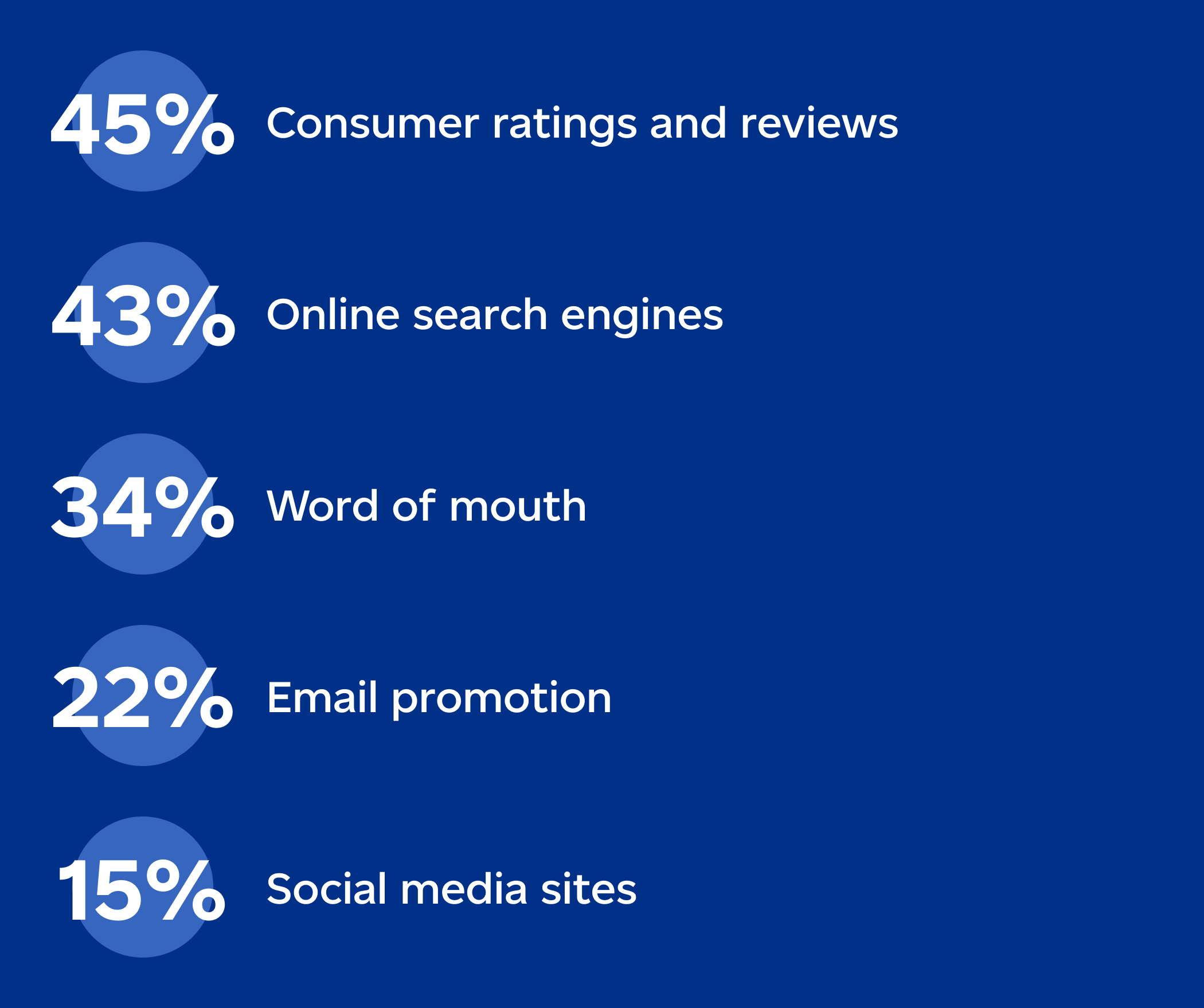
Shoppers rely heavily on the experience of past shoppers who have already experienced your products and brand. Leverage those customers, make yourself visible and continue to grow your business.
3. World class customer experience
Every year is the year of the consumer. We’ve seen leading brands roll up their sleeves and prioritize their efforts on providing exceptional customer-centric experiences that keep consumers coming back for more. Shoppers have come to expect seamless experiences through the end-to-end shopper journey and look to brands to make the online experience easy, accessible and informative. When choosing a retailer, shoppers consider the following influential factors from retailers – consider adding these to your online store to further capture share of spend:1
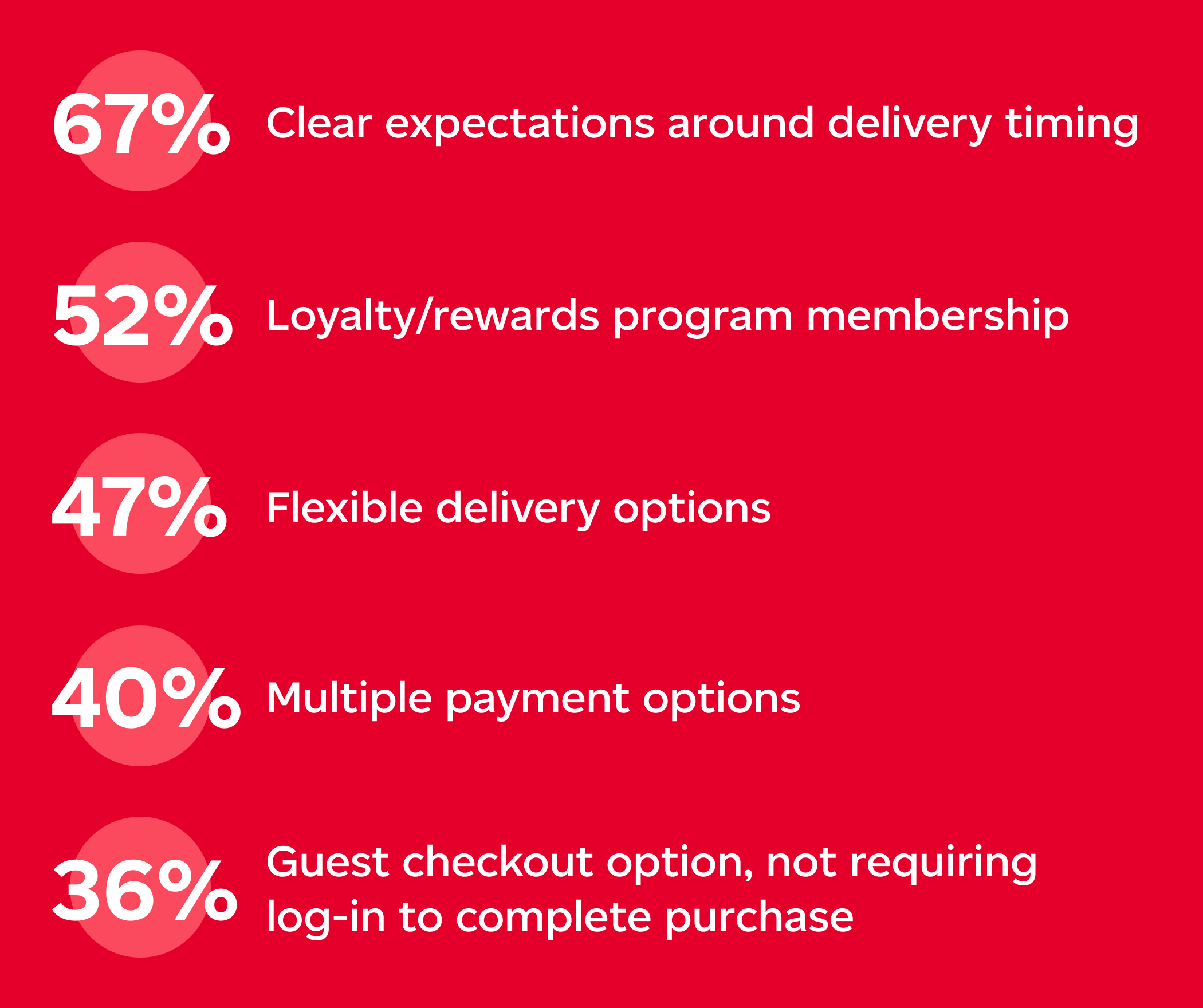
Shoppers will continue to evaluate retailers against one another – that’s a given. Pay close attention to these motivators and strategize to match with consumer expectations. Shoppers are actively searching for brands that use technology to improve price, variety and convenience.
4. A good returns policy is a competitive differentiator
As online shopping has ballooned, so have returns. Rather than looking at returns as a hassle, consider it an opportunity to further distinguish your business from the pack.
Shoppers are strongly influenced by a good return policy. They are more likely to shop with online retailers that make it easy to:

A returns experience that’s complicated or costly taints the entire shopper experience, with 81% saying that a hassle-free returns policy will motivate them to choose one retailer over another.1
Your returns strategy should strive for optimal convenience. Make your returns policy clear and upfront on all key communication channels – from your printed advertisements to your website. If you can, offer consumers free shipping on returns – chances are your competitors already do.
For more information on creating a win-win returns strategy, download our returns guide.
5. Focus on carbon control
Working towards net-zero and carbon-neutral retailing practices remains a key influencer to sustainability-led consumers. The size of your carbon footprint and the genuineness of your public position is a necessary part of your business plan.
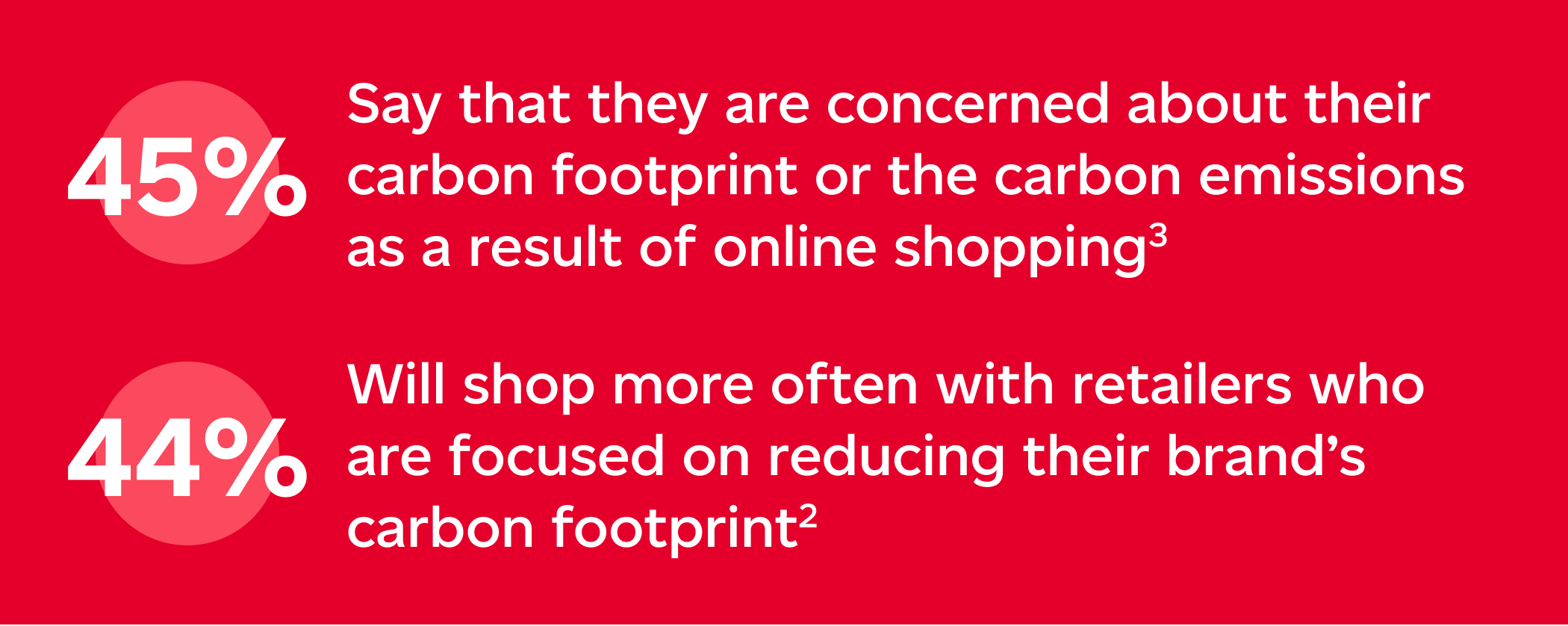
An important step in connecting with your audience is understanding how they feel about the environmental impact of your business. Evaluate how you can make meaningful and realistic strides. Sustainability isn’t always easy. Have conversations with your partners and suppliers to find opportunities to improve your collective carbon footprint. Communicate these shared values and efforts with your customers.
6. Use sustainability practices to drive purchases
As shoppers focus on their environmental impact and how their purchases reflect their values, they’re looking to brands to help them make purchases that align with those values. Sustainable practices and environmental considerations are top of mind for consumers, and a great thing for your business to showcase to help influence a shopper’s decision to purchase.
Your sustainable practices in shipping and packaging could be the deciding factor for shoppers. 1 in 5 shoppers have abandoned a brand they were previously loyal to in order to support more environmentally conscious businesses.1
Consider aligning your shipping and packaging practices with those of the shoppers you’re trying to reach and convert:3
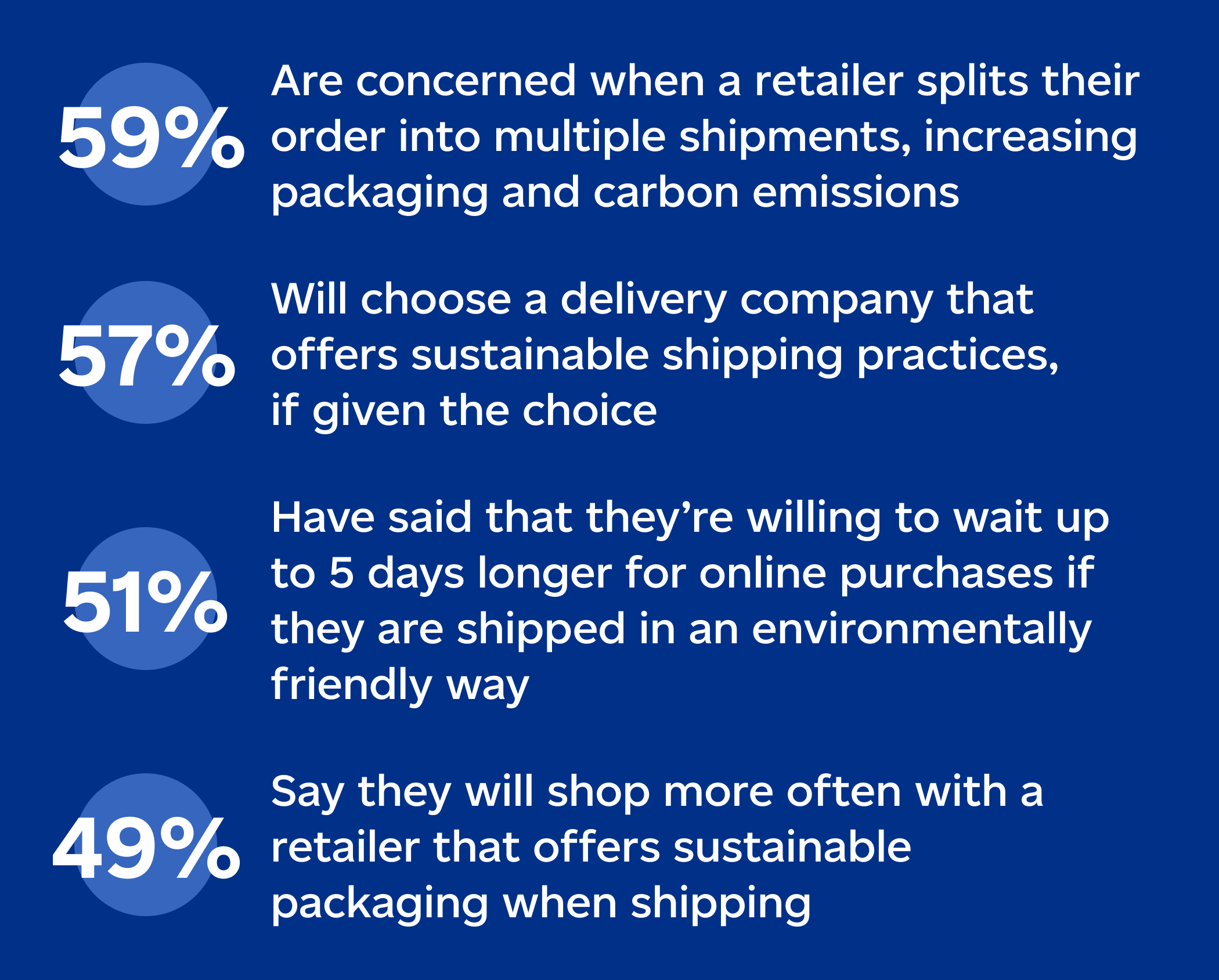
Where you’ve made efforts to be more sustainable, be sure to make it well known – say it loud and say it proud!
7. Your customers can guide you
The shifts of the last few years have made planning for the future a constantly changing game with no easy short-term answers. The best we can do is continually listen to customers and monitor how their needs are changing. That way, we can quickly shift when they shift. Every year, Canada Post invests in delivering industry-leading ecommerce and marketing research to Canadian online retailers. We can help guide you through what’s happening – and why it matters – to help drive your business forward.
Sources:
1Phase 5. Canadian Online Shopper Study, May 2022.
2The Strategic Counsel. Fall Omnibus Report, November 2021.
3The Strategic Counsel. Fall Omnibus Report, November 2022.
This post was first shared by Canada Post. To read the original article, click here.
